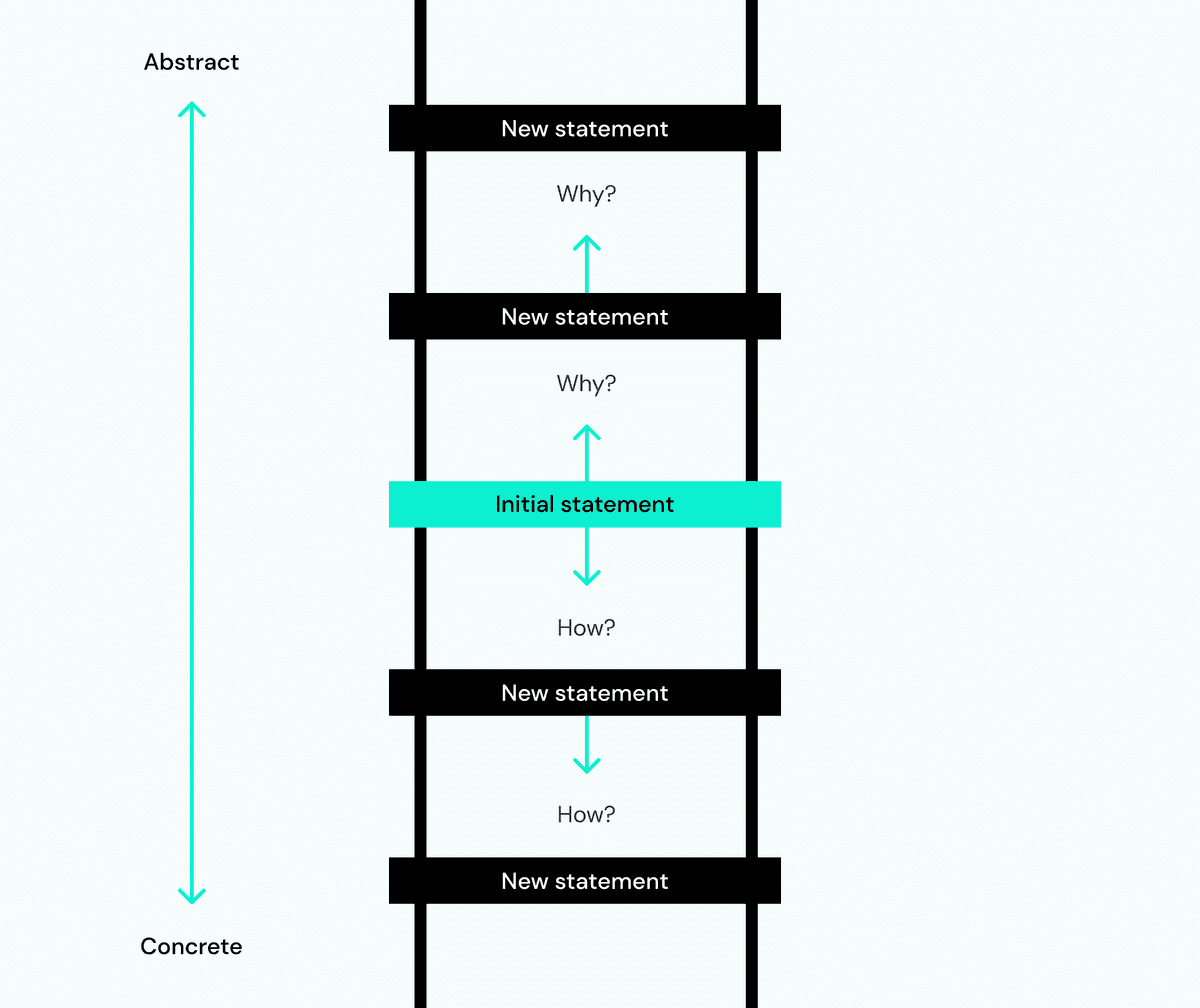#2 Facts fight fiction
Note: This is the second post of the book after the introduction. If you’re new to the book, start with the introduction. Or visit the full table of contents.

In #1 we just wanted to get on the same page; that the way the economy works, is that it doesn’t. It’s broken, it’s sustaining and in most cases expanding the inequality that existed since forever. And doing the same thing over and over again and expecting different results is insane right? Incidentally, not Albert Einstein that said that, it was from Al Anon’ and Narcotics Anonymous literature from the 80’s. So we’re all batshit mental and the addicts know it. But why? If something so huge as the economy is broken, why are we complicit in this massive cognitive bias?
We’re in crisis for many reasons: climate death, poverty, inequality (cheery) — but these are just symptoms, there’s a unifying cause. One thing underpins them, the pursuit of productivity; input, output and consumption. And what drives these behaviours is our pursuit of wealth. Wealth equals success — and we strive for it. In business as with everywhere else in life, what you define as success dictates how people behave. This is in spite of seeing, knowing or practising a better way. When my business partner and I were rolling with the Dutchies (working with a very well known Dutch bank) training 1000s of employees on innovation methods — their first challenge was that what we were showing them was great, spinning up new ideas in days using lean innovation was great, but how could they take that to their day jobs? They needed the way their performance was measured to change and they needed use cases for what we were showing them applied to their daily tasks. So we trained them in the latter and the Chief Innovation Office of the bank adapted business wide metrics based on consultation. It isn’t enough to simply know the right thing to do, you have to change the system too.
The pursuit of wealth is the root cause of our biggest problems. It’s obvious. But this is the challenge, even when the facts scream at us from every legitimate data source in the world, it can have very little effect. When behaviour is emotive, instinctive, embedded through repetition — or in economics, well rewarded, facts and data aren’t enough. It’s why it’s always useful to ask…Why? To build structure to the narrative, to let people come to their own conclusions, to build consensus of understanding. Like an ever inquisitive toddler, keep on asking why.
The Why
Some people reading this ‘proxy’ foreword for the book, wanting to get to tools, tricks and tips might be thinking the ‘why’ of all this is obvious. But this is the crux, the pain point. If the why is so fricking obvious — why do we still operate in an economic system that disempowers and marginalises workers, creates detrimental products, drains resources, ravages ecosystems and drives inequality? You often get this in business when you ask “why”? Blank faces staring back at you like you’re an idiot, like it’s obvious, like you should know. But you keep asking and it becomes apparent that there is no consensus on the why or there’s a fall back to some amorphous ambition like “increasing margin”, so you begin to ask “how”? And then it becomes apparent there’s no tangible link between the plan of action and that ambition. Or you find the research conducted to validate the underlying assumptions of how the plan is going to work was threadbare, open to bias, or simply some person’s opinion. Or there wasn’t any :/
Better than my sloppy example above, a useful, simple and elegant tool when you want to ask why, understand anything better or give structure to a thing is ’The Ladder of Abstraction’. The American linguist S. I. Hayakawa came up with the concept in his 1939 book ‘Language in Thought and Action’. The basic principle is that humans have the ability to reason at differing language levels. These language levels range from concrete words at the base of the ladder to abstract words at the top. So if you’re at the abstract end, ask ‘how’, if you’re at the concrete end, ask ‘why’.

So if our pursuit of wealth is to our detriment, that would mean that our governments are wrong too right? Every year governments and world leaders get up on stage and bang on about GDP growth as the greatest example of national success. Yet we live on a finite planet, we all keep growing, we run out of resource. It’s that simple, yes they are wrong. This doesn’t help with the condition of global cognitive bias we find ourselves in. Every government not only condones, but feverishly encourages what we’re doing. When change is hard, how do we change this global groupthink game of Lemmings?

Amazon, the wrong case study
The way we currently pursue wealth is to our detriment. That can be the pursuit of just enough wealth to survive, like those communities forced into being part of the illegal deforestation gig economy in the Amazon (booming during Covid-19). The logging is an affront to Western ‘civilised society’, we’re righteous in our knowledge that the forests need to be protected for species survival. But the destruction is short term a fix for people doing the work on the ground, a necessity to put food on the table.
Or there’s the other kind of wealth pursuit, the unconscionable kind. The kind best showcased by another, entirely different Amazon. A level of wealth that is not driven by a need to survive. The disparity in motive and magnitude between the two Amazon examples is so vast, it’s almost impossible to imagine.
This kind of wealth subjugates the many and gives monopoly to a few. No greater example of inequality.
Keep scrolling right➝
Props to mkorostoff for this visualisation
So wealth is what we pursue and it is manifested through our economic activity, which is massively detrimental to our world. But why do we pursue wealth? Stupid question? This is another “why?” that gets you looks like you’re a dumb suck. But it needs serious scrutiny. Luckily more people are starting to question why we do the things we do and if they’re the right things to be doing. Unluckily if we’re honest it’s because the existential threat to our way of life seemingly grows bigger everyday so it’s getting hard to ignore.
If wealth = success… What’s failure?
If wealth is success, who wants to admit the opposite failure of poverty? Failure to provide for yourself, your family. Who wants to rely on the state, to rely on charity, to rely on anyone to take care of them? When to be a ‘charity case’ is to have fallen.
We pursue wealth not just to succeed, I mean, when do we achieve success and stop anyway — how much is enough? Unbridled capitalism gives us a limitless unobtainable yardstick. Jeff is not yet sated. We pursue wealth in the beginning to unburden ourselves of the fear of debt. This is the carrot. Oh wait, did I say carrot? I meant stick. The fear of debt; fear of being subjugated, the fear that our freedoms might be eroded, the fear we can’t afford the things we need let alone want. The fear of poverty. Because wealth means power. The absence of wealth means we are powerless.
We build our nest egg to offset the fear of vulnerability in old age or to afford the best healthcare or to provide the best education and the best opportunities for our kids. We create wealth so that our children can inherit, so that they have a better chance than us. There’s always the possibility that one day someone might someday say “how the mighty have fallen”. We climb.
Money can’t buy you happiness
There is no question that wealth is what we collectively deem as success. And yet we all know: “money can’t buy you happiness”. Do we though? Know it? I haughtily laughed as these words trailed my parents lips, sauntering to non-uniform day in my pimp, gleaming Reebok Pumps. That’s two cliches in one for you right there, privilege and the ignorance of youth. There’s little data on a statement so profound and yet so throwaway — but also so inextricably tied to the human condition. But there is some. Two linked longitudinal studies; The Grant study by Harvard and The Glueck study. Now running for over 80 years since 1938 and the Great Depression.
“The project has followed 724 men since they were teenagers in 1938. (Approximately 60 men, now in their 90s, are still left.) The group consisted of men from various economic and social backgrounds, from Boston’s poorest neighborhoods to Harvard undergrads. (President John F. Kennedy was even part of the original group.) Over the years, the researchers have collected all kinds of health information, and every two years they ask members questions about their lives and their mental and emotional wellness.”
The results probably won’t surprise you. What brings about happiness?
“Close relationships, more than money or fame, are what keep people happy throughout their lives, the study revealed. Those ties protect people from life’s discontents, help to delay mental and physical decline, and are better predictors of long and happy lives than social class, IQ, or even genes. That finding proved true across the board among both the Harvard men and the inner-city participants.”
George Vaillant, who directed the study for more than three decades, published a summary of the findings. Vaillant’s main conclusion was that “warmth of relationships throughout life has the greatest positive impact on ‘life satisfaction’“. Put differently, Vaillant says the study shows: “Happiness is love. Full stop.” In response to accusations that the statement was sentimental or overly general, Vaillant revisited his findings and concluded: “The short answer is L-O-V-E.”. The Beatles were right.
Money can’t buy love. But wealth alleviates our fear of debt. Either tangible financial debt (though debt isn’t tangible. I’ll come back to this in a thread on blockchain I’m sure), or being indebted in some other way. Emotional debt through having to rely on a friend or family — or maybe a debt to society from having to rely on the state or charity.
Fear — the stick, should not be what drives us or our economies. There are plenty of events that we can’t control such as; health, the environment, other people — that frighten us plenty, so that we don’t need to design more fear into the way society works. Having a purpose, a reason to be, should be what drives us, it already is what drives us — it’s just not given centre stage.
But, wealth is what we deem as success right now, and fear of poverty can be a powerful driving force. That is a fact. And we can’t simply click our fingers and change that. Not least because — where do we go from here? There is no alternative. Well not right now there isn’t, which means the need to re-design our economy for the better is irrefutable. We conjured ‘modern’ economic theory in the 1800s based on what we thought we knew then and we built the systems of today — we can redesign and rebuild it based on what we know now - and what we can see coming down the line, as clear as bloody day.
“Quite an experience to live in fear, isn’t it? That’s what it is to be a slave”
(Rutger Hauer — Blade Runner)
This is #TheFalseEconomy
If you want to talk about and explore anything we’ve said, get in touch, we’d love to hear from you because it makes us better.
Sign up for purpose
We're writing a book, a 'how-to' for the design and delivery of purpose driven, successful businesses.
Then we're giving it away, so anyone can use it.
